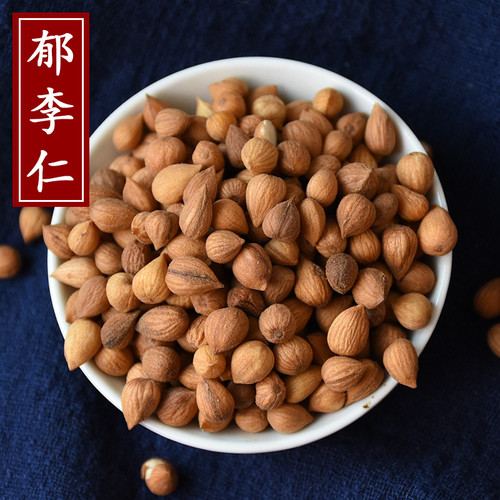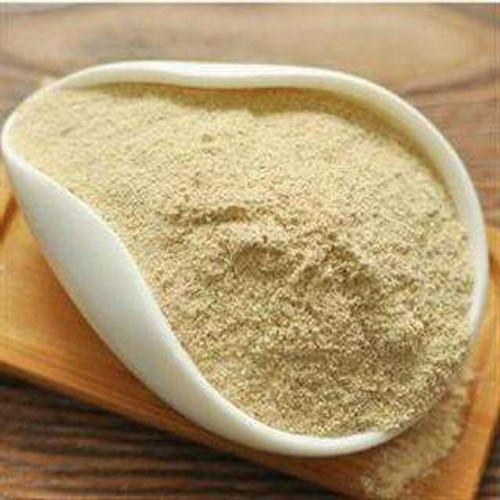Product Overview
Parts used: Dried ripe seeds
TCM category: Laxative herbs that drain downward
TCM nature: Neutral
TCM taste(s): Bitter Pungent Sweet
Meridian affinity: Spleen Large intestine Small intestine
Scientific name: Prumnus humilis, Prunus japonica or Prunus pedunculata
Other names: Japanese bush cherry pits, Oriental bush cherry pits, Korean bush cherry pits, Chinese dwarf cherry pits
Use of bush cherry pits (Yu Li Ren) in TCM
Please note that you should never self-prescribe TCM ingredients. A TCM ingredient is almost never eaten on its own but as part of a formula containing several ingredients that act together. Please consult a professional TCM practitionner, they will be best able to guide you.
Preparation: Extract the pits and dry, crush before use.
Dosage: 3 - 9 grams
Main actions according to TCM*: Moistens the Intestines and invigorates Qi. Increases the flow of urine.
Primary conditions or symptoms for which bush cherry pits may be prescribed by TCM doctors*: Abdominal bloating Constipation Oliguria Edema
Contraindications*: Should be avoided by pregnant women and those with Yin Deficiency
Common TCM formulas in which bush cherry pits are used*:
For chronic constipation due to dryness or Qi deficiency combine bush cherry pits with hemp seeds (Huo Ma Ren) and apricot seeds (Xing Ren).
For abdominal distension, difficult urination and constipation combine bush cherry pits with job's tears (Yi Yi Ren), poria-cocos mushrooms (Fu Ling) and talc (Hua Shi).
Key TCM concepts behind bush cherry pits (Yu Li Ren)'s properties
In Traditional Chinese Medicine (TCM), bush cherry pits are plants that belong to the 'Laxative herbs that drain downward' category. The herbs in this category are those whose main purpose is to treat constipation. They're called 'laxative' because they're often rich in oils. This allows them to lubricate the Intestines in order to help it remove the stools from the body.
Furthermore bush cherry pits are plants that are Neutral in nature. This means that bush cherry pits typically don't affect the balance in your body. Balance between Yin and Yang is a key health concept in TCM. Eating too many "Hot" (Yang) ingredients can lead to an imbalance whereby one has a Yang excess. The inverse is true as well: too many "Cold" (Yin) ingredients can lead to a Yin excess. The Neutral nature of bush cherry pits means that you don't have to worry about that!
Bush cherry pits also taste Bitter, Pungent and Sweet. The so-called "five elements" theory in Chinese Medicine states that the taste of TCM ingredients is a key determinant of their action in the body. Bitter ingredients like bush cherry pits tend to have a cleansing action on the body by clearing heat, drying dampness and promoting elimination via urination or bowel movements. On the other hand Pungent ingredients tend to promote the circulations of Qi and body fluids. That's why for instance someone tends to sweat a lot when they eat spicy/pungent food. Lastly Sweet ingredients tend to slow down acute reactions and detoxify the body. They also have a tonic effect because they replenish Qi and Blood.
The tastes of ingredients in TCM also determine what organs and meridians they target. As such bush cherry pits are thought to target the Spleen, the Large intestine and the Small intestine. In TCM the Spleen assists with digestion, blood coagulation and fluid metabolism in the body. The Large Intestine on the other hand receives the "impure" parts of the digested food from the Small Intestine, absorbs the remaining fluids and excrete the remainder as feces. Like the Stomach, the Small Intestine has a digestive role, extracting the "pure" part of what we injest to the Spleen and the "impure" down to the Large Intestine.









